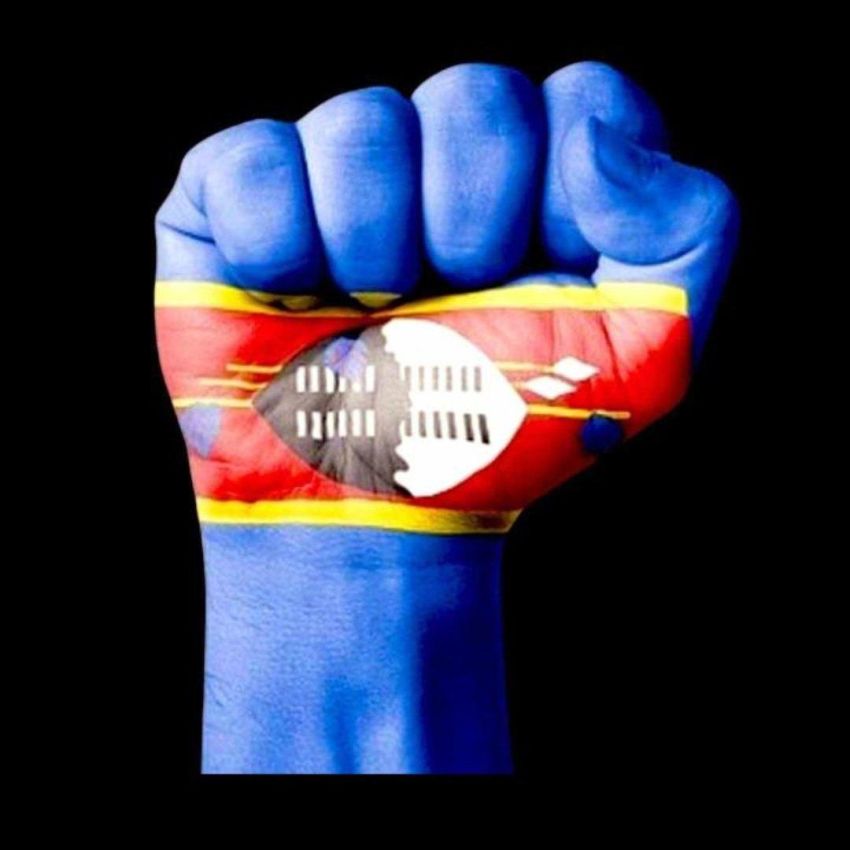
Protests have erupted in Eswatini, a southern African kingdom formerly known as Swaziland, following the alleged police murder of a law student in early May.
Evidence suggests police officers involved in the killing of 25-year-old Thabani Nkomonye dumped his body in a forest and made the scene look like a car accident.
Nkomonye's death provoked the Justice for Thabani protests, which involved peaceful marches to police stations to deliver petitions demanding an investigation.
While largely led by students not aligned to any political parties and young urban poor, participation in the protests has been diverse and has included political groups such as the banned People's United Democratic Movement, the largest opposition party, and the Communist Party of Swaziland.
The police and the hand-picked government of King Mswati III — who is Africa’s last absolute monarch and has been in power for 35 years — have made it clear they have no intention of investigating. Consequently, the movement’s demands have since broadened to include calls for a democratic government.
Protests have also spread to rural areas.
There were large demonstrations on June 26, mostly involving young people delivering petitions to the tinkhundla (local government chiefs) across the country.
While largely peaceful, some protests have been accompanied by looting of grocery stores and other shops. A brewery and crops owned by Mswati were also set on fire.
When an audio message began to widely circulate encouraging protesters to set fire to police and military houses, prominent activists spoke out against this, arguing that behind the message were people being paid to do the king’s work and that protesters should not threaten human life.
The government’s has responded to the new movement with brutal repression.
The police and army have shot live ammunition at protesters, claiming they had run out of tear gas. The large numbers of protesters with head injuries indicate that security forces are shooting with the aim to kill.
Soldiers now permanently patrol the streets, intimidating citizens by randomly pointing their rifles at them and yelling at people to go home. Security forces have also raided homes and attempted to force confessions from people.
Military helicopters constantly fly just above homes looking for those they suspect of being involved in the protests.
Going to the shops comes with the risk of being arrested or shot at. Plain-clothed security forces drive around in civilian cars, jumping out to fire on those looting or suspected of looting.
Following nights of repeated gun fire, an eerie silence has now fallen on the capital due to a curfew.
Arrest warrants have been issued against two pro-democracy MPs, who have been forced into hiding, while hundreds of protesters remain in jail, having been refused bail.
Many more are in hospitals — which were already in a dysfunctional state before having to cope with the flood of victims of police violence. Having run out of basic medicines, the injured are often checked over at the hospital and then sent to private pharmacies to buy the medicines they need.
Given the complete lack of COVID-19 vaccines and the current pandemic emergency in southern Africa, it is almost certain there will be a drastic spike in cases in the weeks ahead.
The government has shut down schools and internet access has been blocked for more than a week. Local media has focused on sensationalising stories about looting, while ignoring the human rights abuses carried out by security forces.
While the government and Mswati’s daughter say the king is still in the country, he has not bothered to address the nation or instruct the army or police to stop killing people. Mswati has also given no indication that he is willing to negotiate or relinquish any power.
A Southern African Development Community (SADC) fact-finding mission arrived in the country on July 4th. However, it was packed with Mswati’s friends and only spoke to the government and monarchy. The SADC delegation has promised to speak to civil society groups, but only as part of a later mission to take place on an unspecified date.
Civil society groups are calling for international support to establish a transitional government and for Mswati to immediately step down. They are also calling for an independent investigation into the crimes and human rights abuses committed by security forces in the past few weeks.